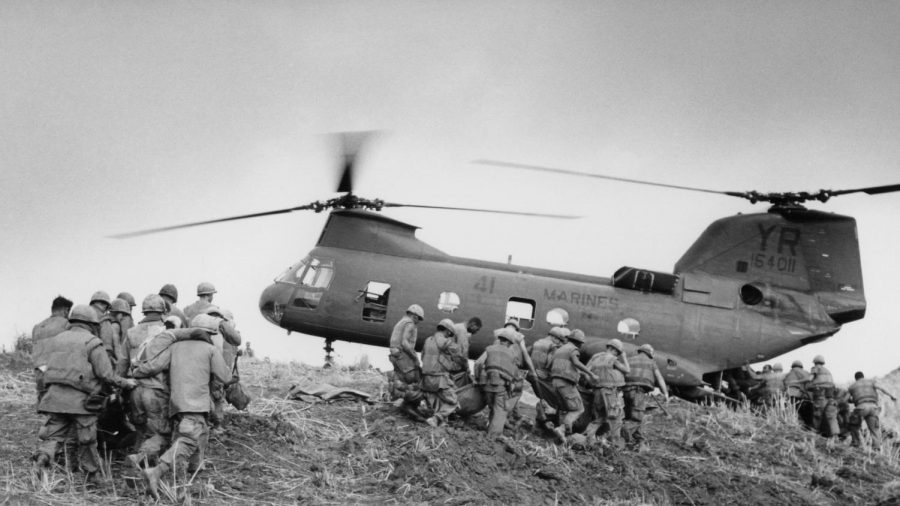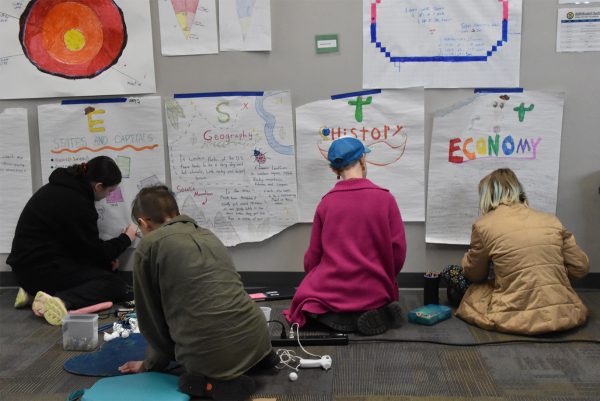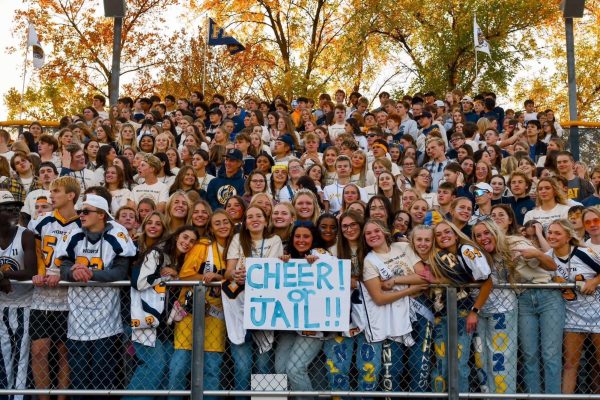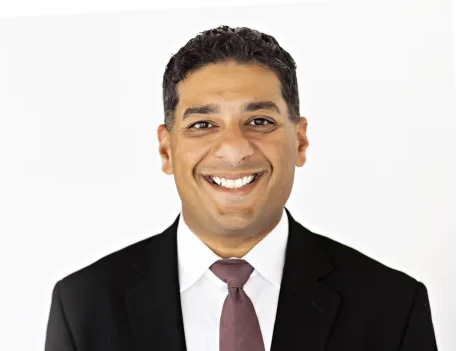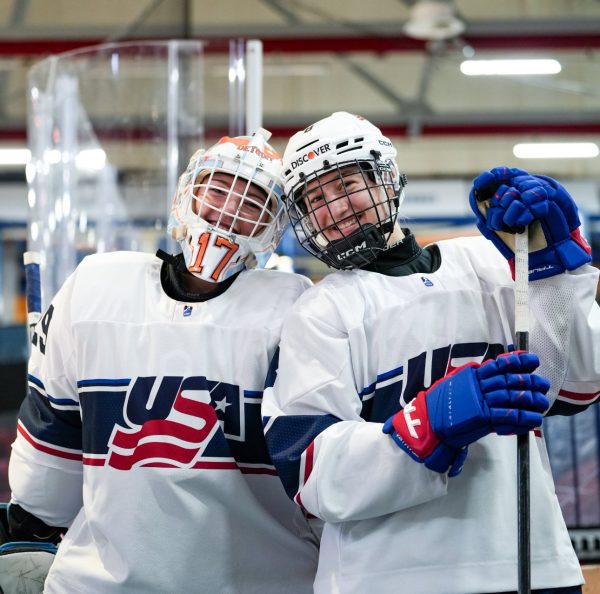History Club interviews Vietnam War veterans
Last November the Fargo North High History Club interviewed two Vietnam War Veterans, Steve and Ed, for a club activity. We left with a greater understanding of these two men’s lives, which also gave us insight into the stories of many other Vietnam Veterans and civilians. We were able to hear first hand views of the Vietnam War: something that feels like so long ago, but stays with thousands of Veterans to this day.
Vietnam was a colony of France, until WWII when Japan overtook it. During Japan’s occupation, political leader Ho Chi Minh, who was inspired by Chinese and Soviet communism, formed the Viet Minh, or the League for the Independence of Vietnam. After WWII, France once again resumed control, placing Emperor Bao Dai on the throne. The Viet Minh, still wanting a united and free Vietnam, took over North Vietnam with the goal of eventually taking over South Vietnam as well.
The United States joined the war on the side of the South Vietnamese because the US was strongly against communism (this was during the period of the Cold War). The US became increasingly more involved, spurred on by the Gulf of Tonkin Resolution, which gave then President Lyndon B Johnson broad war powers. As the war dragged on, more and more people protested it. These protests took place throughout the country, especially on college campuses. Then, on November 15, 1969, the largest antiwar demonstration in American history took place in Washington, D.C. It consisted of over 250,000 people who asked for the withdrawal of American troops from Vietnam. Finally, in January 1973, the US signed a peace agreement with North Vietnam. This was the United State’s first major loss. The soldiers returned home and were greeted by hate. Hate from those who protested the war, calling them baby killers and spitting on them. Hate from those who supported the war, disappointed that the soldiers had lost. In April 1975, North Vietnam captured Saigon, uniting North and South Vietnam. In 1976, Vietnam declared itself the Socialist Republic of Vietnam.
Steve and Ed both took part in this complicated and divided war. They contributed in different ways and left with unique stories. However, they also share many similar experiences, especially regarding the aftermath of the war.
Steve volunteered to fight in the Vietnam War because he said, “There was a war going on and I didn’t know how it could happen without me being part of it.”
Steve enlisted for the NSA (National Security Agency) where he later received intelligence training to prepare him for his later role as code breaker and interrogator. Some of his work was very routine: go over papers and try to find patterns. As an interrogator, Steve developed an effective system. Oftentimes, the prisoner would have been held for 12 to 24 hours before Steve met them. Therefore, Steve would first offer them a cigarette as they wouldn’t have had one for some time. He’d begin by talking about life while offering more cigarettes. Eventually, the prisoner would become relaxed. Steve described this moment saying, “It was like their face melted.” At that point, Steve was able to ask the prisoner the info he needed. Using nicotine to extract information was an effective tactic.
Steve was rather frustrated about how the war ended. He said, “We had literally won the war.” But then the United States started pulling people out. There was a major attack by the North Vietnamese. The South Vietnamese were standing up, but the US had blocked authorization for more aid. Soon, there was no amo. Then the United States’ political atmosphere came apart, due to the Richard Nixon Watergate scandal. The war was over, but Steve said, “Momentarily we won.”
The return home was not triumphant. Steve’s plane landed in the middle of the night. They were greeted by a hippie who spat on them and called him a baby killer.
Steve said, “I only wore my ribbons for about 6 hours that day… nobody wanted to hear about Vietnam.”
Steve didn’t talk about the war until the 1990s. Steve said, “I knew some people for 30 years who didn’t know I was a Veteran.”
The Vietnam War Veterans weren’t only treated poorly by the antiwar groups. They were also discriminated against by Veteran groups and WWII Soldiers. Steve said, “No other Veterans will ever be treated like we were.”
The war left its print on the world and the individuals who served in it. Steve said, “ For at least 40 to 45 years after Vietnam, I would wake up between 3 to 4 with nightmares.” Luckily, his friend Ed convinced him to check in with the VA. Now Steve knows what these nightmares are and how to deal with them. Steve has also found that talking with fellow Vietnam Veterans has helped. “Being with a group, having lunch, doesn’t sound like a lot, but it gets you grounded,” Steve said.
Ed received his draft card, while he was a student at NDSU when he only had 11 credits left to graduate. Not being able to graduate was a big disappointment for him, because he was so close. At that time in the military, the cadets were often told what to do. There wasn’t much freedom in choosing your role. Today there’s more freedom and the soldiers are encouraged to pursue their interests. At the time, Ed wanted to be a medic because it was a safe option. Luckily, when Ed asked to become a medic, he got it. As a medic, Ed was able to serve troops, villages, and orphanages, which he enjoyed. However, the job was hard, especially emotionally. Many years later, Ed received a picture of a group of kids he provided support for. Ed often wonders what happened to them, especially the little boy and girl who would often cling to him. “Life didn’t mean anything to them. Sometimes they would take life,” Ed recalled.
Ed believes the Vietnam war was a mixed up situation. Ed said, “It wasn’t a just war. We could have done what we were sent to do [establish freedom]. All three; the US, North Vietnam, and South Vietnam; were corrupt.” It also came with mixed feelings. The soldiers didn’t get much information from the US, therefore, they didn’t know about the protests and antiwar movements that were happening back home. When they did, the soldiers felt like they were abandoned.
Ed’s return home was similar to Steve’s and many other Vietnam War Veterans. Ed returned during the day and was therefore greeted by a large crowd of rioters, protesters, and name callers. Ed’s buddy kissed the ground, because he was so glad to finally be home, but then they were quickly rushed into the terminal for safety.
Ed said, “From then on you didn’t want to tell anyone you were a Vietnam Vet.”
Later, Ed tried to join the American Legion, a Veteran support group, but was told to leave by a WWII group because, “We didn’t know what combat was like… that was hard to take,” Ed said. He immediately dismissed his membership.
Ed was also scarred by the Vietnam War. He would experience nightmares and daytime horrors that would leave him in tears. Eventually, Ed turned to alcohol.
“The only time I found relief was through alcohol. Addiction came over me. I smothered my disappointments in alcohol,” Ed said.
Luckily, Ed was approached by a counselor. Now Ed belongs to a therapy group, which he enjoys attending. Then Ed found his need to help people again by facilitating recovery groups. Ed said, “That’s what saved my life.” Now, it’s been 40 years since Ed has taken to alcohol, and, even though the horror of the Vietnam War will never truly go away, “Now the management factor is there.”
These are the experiences of two out of the many Vietnam War Veterans who risked their lives and mental health to fight for South Vietnam. In return, they were greeted with hate. Hate that caused them to hold in secret one of the simultaneously bravest and most horrifying parts of their lives. Taking part in a war requires much bravery, but returning home to a nation that hates you required extreme amounts of bravery as well. As Steve said, “No other Veterans will ever be treated like we were,” and no other Veterans should ever be treated like they were again. Whether or not someone agrees with the war doesn’t change the honor that should be given to Soldiers and Veterans for their deep sacrifice and bravery.
Your donation will support the student journalists of Fargo North High School. Your contribution will allow us to resume physical printing of our newspaper for students at Fargo North!
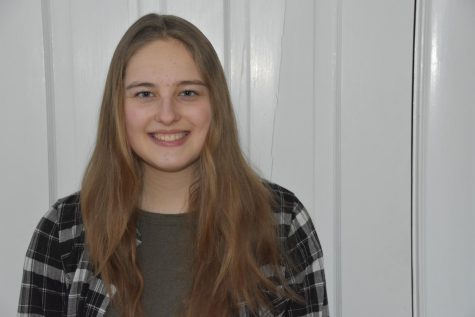
Laura Simmons is a writer for Fargo North High's Scroll. She takes Orchestra and Latin as well as Journalism for her electives. She is also active in multiple...
